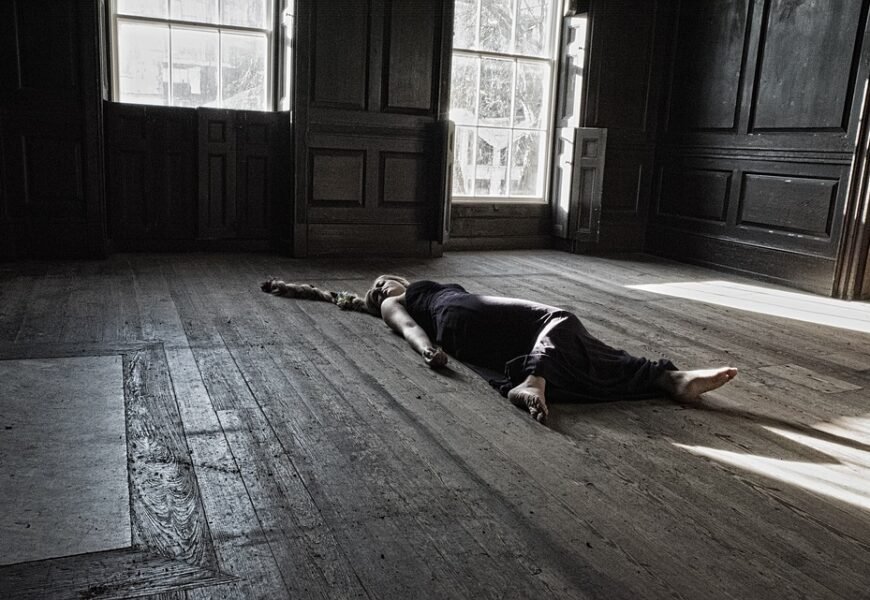Introduction: A Silent Struggle
BIPOC mental health needs deserve attention and understanding, yet cultural barriers often prevent open discussion. Imagine this scene: you’re sitting at a family gathering, laughter and conversation fill the room, but there’s a shadow hovering over you. You overhear a cousin casually mentioning how “Black people don’t talk about mental health.” The comment strikes a chord; something inside surprises you. Does this mean your struggles are less valid? Perhaps the pressure to maintain a facade of strength means you can’t voice your feelings. You smile, nod, and remain silent.
This scenario encapsulates a significant struggle faced by many individuals within BIPOC (Black, Indigenous, and People of Color) communities—mental health challenges that often go unaddressed due to stigma, cultural perceptions, and the deep-rooted fears of vulnerability. In this article, we will discuss the complexities of mental health in BIPOC communities and how we can work together to “break the silence.”
Understanding the Core Issue: The Complexity of BIPOC Mental Health
When we delve into the topic of mental health, particularly among BIPOC communities, the conversation becomes multifaceted. There are significant cultural, historical, and socio-economic factors at play that contribute to unique challenges in mental health care.
Cultural Stigma and Historical Trauma
For many BIPOC individuals, mental health stigma is deeply ingrained in cultural narratives. In certain cultures, mental health issues may be viewed as a weakness or even a source of shame. This stigma can deter individuals from seeking help or expressing their struggles, leading to a cycle of silence that can exacerbate mental health issues.
Moreover, historical trauma—narratives of oppression, discrimination, and violence—affects the collective psyche of BIPOC communities. This trauma can manifest as anxiety, depression, or post-traumatic stress disorder (PTSD), often compounded by systemic barriers to access quality mental health resources.
Access to Care: A Systemic Barrier
Access to mental health care is another critical issue. Economic disparities, lack of representation in mental health fields, and cultural insensitivity in treatment can create a significant gap between the need for help and the ability to receive it. For many BIPOC individuals, these barriers can result in delayed treatment or a complete aversion to seeking mental health services.
Practical Tips and Strategies: Taking Steps Towards Change
Understanding the unique challenges faced by BIPOC communities when it comes to mental health is a crucial first step. However, knowledge alone doesn’t lead to change. Here are practical strategies that can help individuals, families, and communities break the silence and foster open conversations about mental health.
Create Safe Spaces for Dialogue
Encourage discussions about mental health within your social circles. These dialogues can occur in various settings—family gatherings, community meetings, or even among friends. Here’s how:
-
- Choose the Right Environment: Select a comfortable, quiet space where everyone feels safe to speak.
-
- Use Open-Ended Questions: Start discussions with questions that invite sharing, such as “How have we talked about mental health in our culture?” or “What does seeking help look like for us?”
-
- Normalize Vulnerability: Share your own experiences. When you speak openly about struggles, it creates a ripple effect, encouraging others to do the same.
Educate and Share Resources
Knowledge is power. Share resources that promote mental health awareness within your community:
-
- Books and Articles: Create a reading list that covers mental health topics from authors in BIPOC communities, highlighting both personal stories and evidence-based information.
-
- Workshops and Seminars: Organize educational events that focus on mental health, inviting professionals to break down complex topics into relatable information.
-
- Online Platforms: Utilize social media to spread awareness. Use hashtags that focus on BIPOC mental health and share inspiring stories or tools.
Advocate for Cultural Competency in Healthcare
Advocacy can transform systems. Encourage local health providers to incorporate cultural competency training to ensure that BIPOC patients feel represented and understood:
-
- Research Local Services: Advocate for mental health providers who specialize in or are aware of the unique needs of BIPOC communities.
-
- Promote Inclusivity: Push for diverse representation in mental health professions to create a relatable environment for clients.
-
- Voice Concerns: Write letters or attend public meetings to hold healthcare systems accountable for providing equitable resources.
Real-Life Examples: Stories of Resilience and Change
To illustrate just how impactful these steps can be, let’s examine the stories of several individuals who have successfully navigated their mental health journey.
Aisha’s Awakening
Aisha, a first-generation Muslim-American, felt immense pressure to uphold her family’s reputation. After battling depression for years, she finally reached a breaking point. She decided to organize a family gathering focused on mental health. Aisha began by sharing her experiences intertwined with her cultural struggles. To her surprise, multiple family members opened up about their struggles as well, allowing for healing and understanding. By creating that safe space, Aisha broke generations of silence within her family.
Jason’s Community Impact
Jason, a young Black man, noticed a lack of mental health conversation within his local community. He started a grassroots movement called “Mind Matters.” This initiative brought together peers to share their stories and struggles in a supportive environment. Through workshops, they educated members of the community about stress management, coping techniques, and when to seek help. Jason’s stories resonated so deeply that participation grew, breaking the stigma around mental health.
Overcoming Challenges: Navigating Obstacles in the Journey to Mental Health
While the journey towards improved mental health in BIPOC communities is filled with hope, it isn’t without challenges. Understanding these hurdles prepares us to face and overcome them.
Addressing Misinformation
Misinformation about mental health abounds. Many beliefs around mental health treatments stem from cultural narratives or lack of exposure to mental health education. Combat misinformation by:
-
- Fact-Checking: Encourage critical thinking and verify information about mental health with credible sources.
-
- Open Conversations: Create opportunities to discuss myths and truths surrounding mental health. This can unearth fears and misunderstandings that keep people from taking action.
Navigating Personal Resistance
Personal resistance can also emerge when someone wants to seek help but is encouraged to remain strong. Normalize asking for help by:
-
- Redefining Strength: Encourage the belief that seeking help is a sign of strength, not weakness. Use quotes or historical examples of leaders who sought mental health support.
-
- Peer Support: Create peer support groups that emphasize shared experiences, where individuals can voice their challenges in a validating environment.
Conclusion: A Call to Break the Silence
As we close this discussion on breaking the silence surrounding mental health within BIPOC communities, let’s carry forward the key takeaways: understanding the nuances of cultural stigma, advocating for accessible resources, and cultivating safe spaces for dialogue are essential components to fostering a supportive environment.
The journey toward mental wellness is not linear, and each step taken, no matter how small, matters. By uniting as a community, challenging old narratives, and embracing vulnerability, we can redefine what it means to take care of our mental health.
Let’s continue this important dialogue, offering support and understanding to one another, as we work to break the silence for good. Remember that you are not alone; together we can advocate for change and embrace the beautiful complexity that is our existence.














